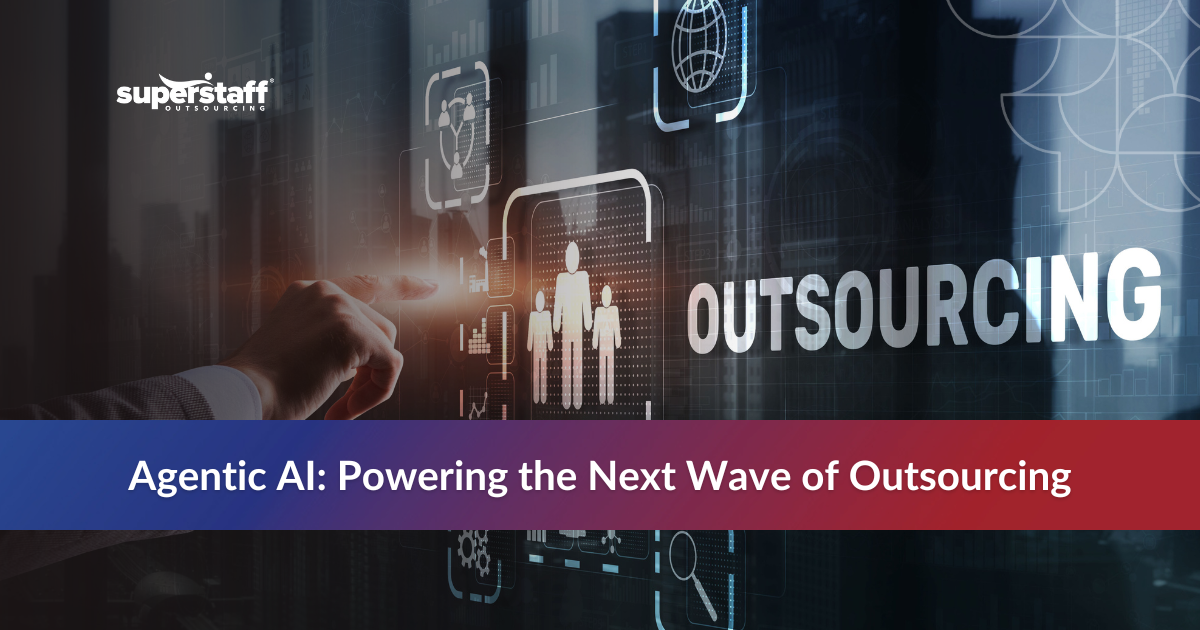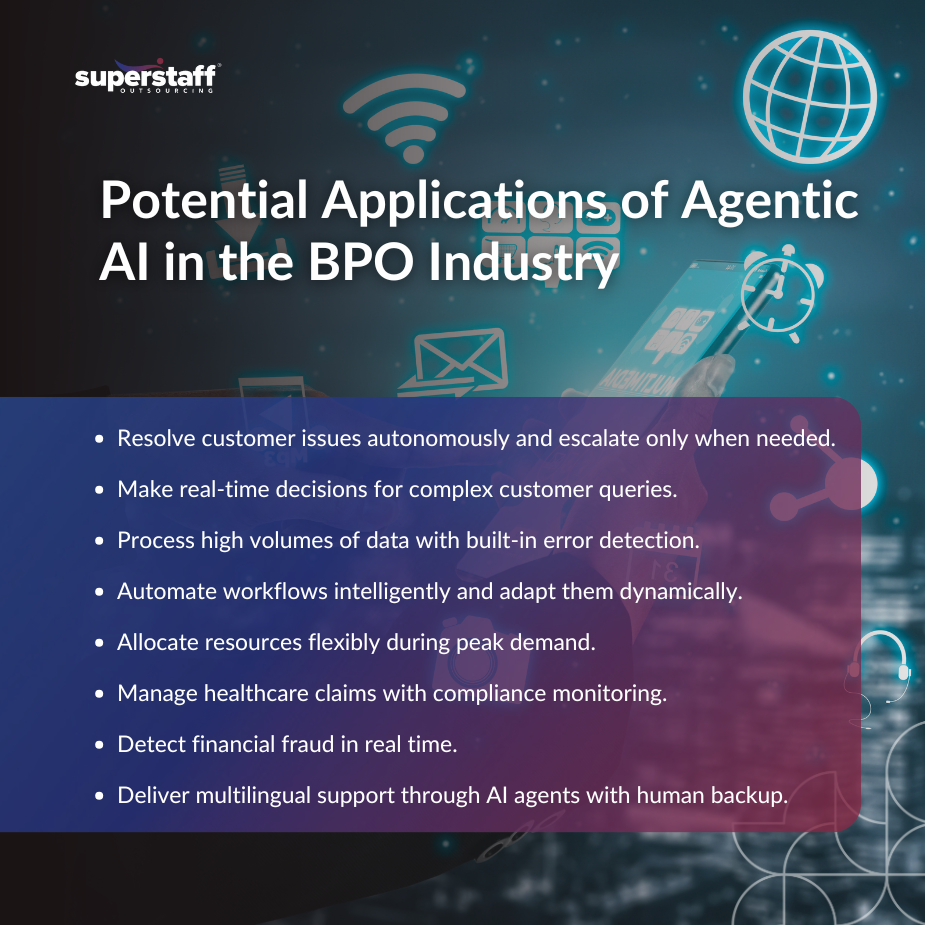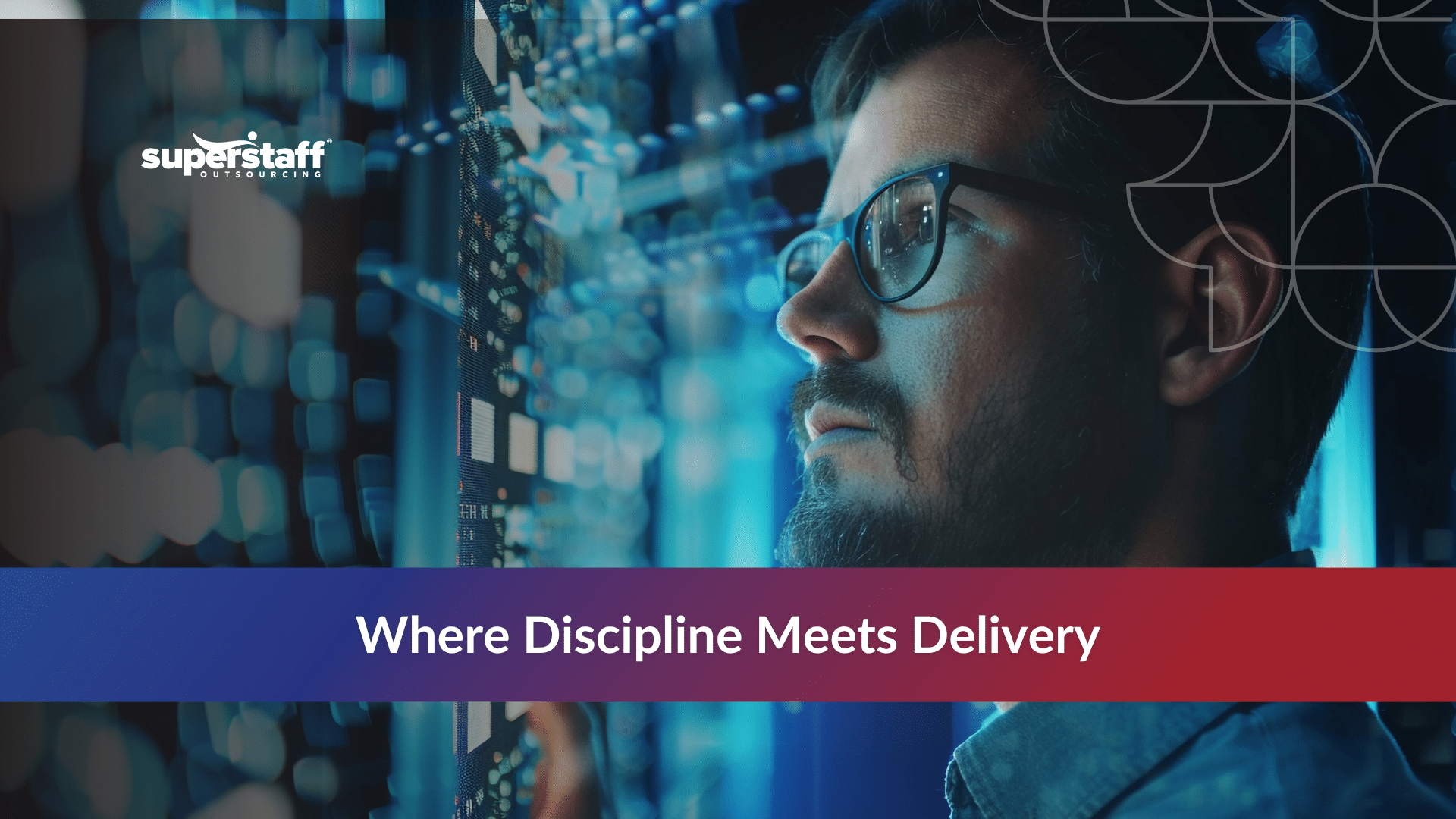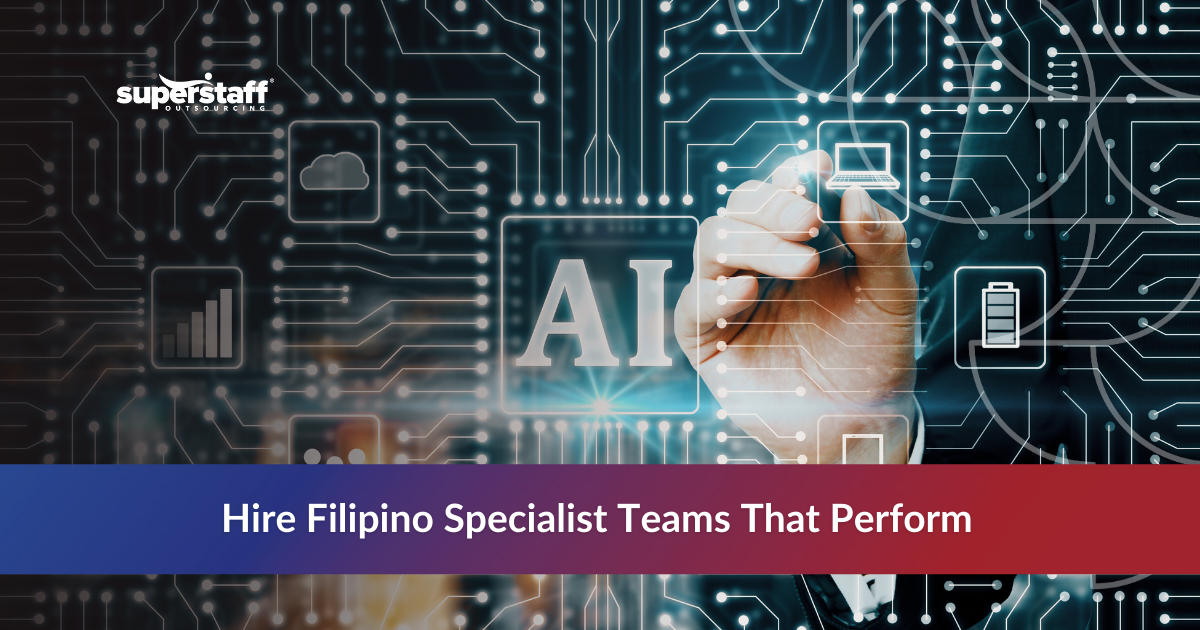
Artificial intelligence has long been a powerful enabler in outsourcing, but the industry is now on the edge of its next big leap. From chatbots handling simple customer inquiries to robotic process automation (RPA) streamlining repetitive back-office tasks, traditional AI has already reshaped how Business Process Outsourcing (BPO) providers deliver value.
Yet these tools, while efficient, have always been reactive—limited to preprogrammed responses and rule-based processes. That’s where agentic AI comes in. Unlike earlier systems, agentic AI brings autonomous decision-making, adaptability, and the ability to pursue goals with minimal human intervention, all while staying aligned with business objectives.
Agentic AI is the next evolution, moving beyond static automation to systems capable of autonomous decision-making, adaptability, and alignment with human goals. This shift doesn’t just enhance efficiency; it redefines customer experience, operational scalability, and the very nature of outsourcing partnerships.
In this blog, we’ll explore what agentic AI is, how it differs from past AI technologies, its real-world applications in BPO, and how businesses can harness it effectively. Most importantly, we’ll look at why early adopters—especially those choosing to outsource to the Philippines—will be best positioned to lead in this new era of Autonomous AI BPO.
Defining Agentic AI and Its Core Capabilities
Agentic AI refers to artificial intelligence systems capable of making decisions, adapting to changing environments, and pursuing goals autonomously while remaining aligned with human intentions. Unlike rule-based AI, which executes predefined commands, agentic systems can learn, evaluate, and act independently.
The key difference lies in agency. Traditional automation handles repetitive tasks efficiently but lacks adaptability when conditions change. Agentic AI, however, goes further—it can analyze context, weigh alternatives, and choose the best course of action.
Examples of agentic systems in real-world use include:
- Virtual assistants that don’t just follow commands but anticipate user needs.
- AI-powered fraud detection systems that autonomously flag suspicious transactions in real time.
- Logistics bots that reroute deliveries instantly when disruptions occur.
This leap in functionality is why Agentic AI is transforming the BPO industry. It has the potential to take outsourcing beyond cost efficiency, toward an era where adaptability and customer-centric outcomes drive value.
The Evolution of AI in the BPO Industry
To understand the promise of agentic AI, it helps to trace the path of AI in outsourcing.
- Early AI tools: The first wave included basic chatbots and RPA. These systems were useful but limited to repetitive, rule-based tasks.
- Predictive analytics: The next stage brought forecasting tools that improved decision-making but still required human oversight.
- Conversational AI: Modern chatbots and virtual assistants improved personalization but often failed with complex or context-heavy queries.
The limitation in each phase was the same: AI could process data and follow rules, but it could not think ahead or act in alignment with broader goals. Agentic AI overcomes this by merging automation with adaptability, allowing BPO operations to function with intelligence that mirrors human judgment—only faster and at scale.
This evolution explains why outsourcing leaders are now embracing Autonomous AI BPO as a way to not only cut costs but also gain a strategic advantage.

Practical Applications of Agentic AI in Customer Experience Outsourcing
Customer experience (CX) has always been the heart of outsourcing, and agentic AI is set to raise the bar.
- Autonomous issue resolution: Agentic systems can resolve customer complaints on their own, escalating only when human empathy is needed. This reduces handling time and improves first-contact resolution rates.
- Proactive outreach: Unlike reactive chatbots, agentic AI can anticipate customer needs—sending timely offers, reminders, or solutions before issues arise.
- Real-time decision-making: When faced with complex queries, agentic systems can weigh multiple data points instantly, ensuring customers get precise and personalized responses.
For companies seeking to outsource to the Philippines, this presents an enormous opportunity. Filipino outsourcing firms already excel in customer empathy and cultural compatibility; pairing that with agentic AI transforming BPO industry workflows creates the perfect balance of efficiency and human touch.
Transforming Back-Office Operations with Agentic AI
Beyond customer interactions, agentic AI shines in back-office outsourcing where accuracy and scale matter most.
- Data processing and error detection: Agentic systems can spot anomalies in data entry or reporting, preventing costly mistakes.
- Intelligent workflow automation: Rather than following rigid steps, agentic AI adapts workflows in real time based on task complexity or volume.
- Dynamic resource allocation: In high-demand periods, systems autonomously reassign resources to critical tasks, reducing bottlenecks.
This makes Autonomous AI BPO a game-changer for businesses handling finance, HR, logistics, or compliance-heavy operations. Traditional outsourcing promised cost savings; agentic outsourcing delivers resilience and adaptability.
Specialized Support Services Powered by Agentic AI
Not all outsourcing is transactional. Many industries rely on specialized, high-stakes services where agentic AI can have profound impact.
- Healthcare claims processing: AI can verify records, ensure compliance, and escalate anomalies for human review. This reduces backlogs and errors in a heavily regulated sector.
- Financial fraud detection: Autonomous systems can track patterns across millions of transactions, flagging threats before they escalate.
- Multilingual AI agents: With globalization, agentic AI can deliver real-time multilingual support, seamlessly routing complex issues to human agents when cultural nuance is required.
These specialized applications demonstrate why agentic AI is not just a supplement to outsourcing—it’s a foundation for entirely new service models.
Human-AI Collaboration in the Agentic Era
While automation often raises fears of job displacement, the reality of agentic AI transforming BPO industry is more collaborative. The most successful models blend machine autonomy with human empathy.
- Roles for human agents: AI handles the routine, while humans focus on relationship building, complex negotiations, and emotionally sensitive cases.
- Upskilling and training: Agents are being trained to supervise AI, interpret its insights, and provide higher-level services.
- Ethical oversight: Human teams ensure AI decisions are fair, unbiased, and aligned with company values.
This hybrid model is especially effective when companies outsource to the Philippines, where BPO professionals’ strengths in communication and empathy complement the precision of agentic AI.
Business Benefits of Adopting Agentic AI in Outsourcing
The adoption of agentic AI brings tangible, measurable business outcomes.
- Reduced operational overhead: AI lowers costs by minimizing manual errors and increasing process efficiency.
- Increased first-contact resolution: Proactive and autonomous systems reduce escalations, improving customer satisfaction.
- Scalability during peak seasons: Agentic systems dynamically scale support without requiring massive workforce surges.
For decision-makers, the case for Autonomous AI BPO is no longer about “if” but “when.” Those who invest early gain a competitive edge, while laggards risk being left behind.
Potential Challenges and Risks of Agentic AI in BPO
Of course, transformation comes with hurdles. Here are a few of the potential challenges and risks of implementing this technology without proper guidance:
- Integration with legacy systems: Many firms struggle to merge agentic AI with outdated IT infrastructures.
- Data privacy and compliance: Autonomous decision-making must align with international regulations like GDPR and HIPAA.
- Workforce adaptation: Employees may resist AI adoption without proper training and change management.
While these risks are real, they are not insurmountable. With the right strategy, businesses can adopt agentic AI responsibly and effectively.
Best Practices for Implementing Agentic AI in Outsourcing Operations
To successfully deploy agentic AI, businesses should follow a structured roadmap:
- Start with hybrid deployments: Pair AI with human oversight to build trust and minimize risks.
- Invest in data quality and governance: The accuracy of AI decisions depends on clean, reliable data.
- Maintain transparency in AI decisions: Ensure customers and clients understand when and how AI is involved.
BPO providers in established hubs—particularly those offering Autonomous AI BPO solutions when businesses outsource to the Philippines—are already applying these practices, making them ideal partners for forward-looking companies.
The Future of the BPO Industry in the Agentic AI Era
Looking ahead, the agentic AI transforming BPO industry story is just beginning.
- From labor arbitrage to innovation-driven value: Cost savings will no longer be the sole driver; innovation will be the true differentiator.
- Rise of fully AI-managed service lines: Certain processes may operate with little to no human intervention.
- Global competition based on technology leadership: Outsourcing providers with the best AI capabilities—not just the lowest costs—will dominate.
This future favors those who embrace agentic AI early and position themselves as leaders in the AI-powered outsourcing economy.
Leverage Agentic AI for Enhanced Productivity and Efficiency
Agentic AI is not just another tool—it is the next chapter in the outsourcing evolution. By combining autonomous decision-making with human alignment, it brings new levels of efficiency, personalization, and scalability to BPO operations. From customer service to back-office work and specialized support, agentic AI is already redefining how businesses view outsourcing.
Companies that seize this opportunity—especially those choosing to outsource to the Philippines, where skilled professionals and AI adoption intersect—will future-proof their operations and deliver unmatched value. While challenges remain, the rewards of embracing Autonomous AI BPO far outweigh the risks.
The future is clear: Agentic AI transforming BPO industry practices will shape the next decade of global business. Now is the time for decision-makers to launch pilot programs, explore partnerships, and secure their place in this new era of intelligent outsourcing.






